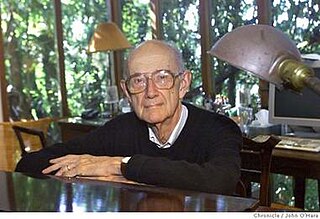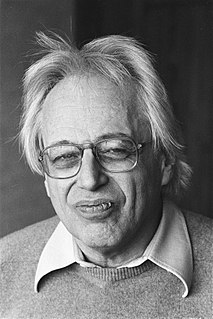This article has multiple issues. Please help improve it or discuss these issues on the talk page . (Learn how and when to remove these template messages)
|
Edward Gold (July 25, 1936 to March 2, 2022), was an American pianist and composer.
This article has multiple issues. Please help improve it or discuss these issues on the talk page . (Learn how and when to remove these template messages)
|
Edward Gold (July 25, 1936 to March 2, 2022), was an American pianist and composer.
Gold was born and raised in Brooklyn, New York and lived most of his adult life in Manhattan.[ citation needed ]
He attended public schools and majored in music at CCNY (today part of the City University of New York). He received his masters from Yale University School of Music[ citation needed ] where he studied with Ellsworth Grumman, Mel Powell and H. Leroy Baumgartner. Edward also studied with Nadia Reisenberg at the Mannes College of Music.
After completing his studies, Gold worked as a pianist and toured internationally. The recording of Gottschalk Piano Music (1973) on which he performed was named a "Recording of Special Merit" by Stereo Review. [1] His recordings were also noted by The American Record Guide [2] and The Musical Quarterly . [3]
Early on, Edward's music was in the style of atonality (mostly Schoenberg), but with a traditional structural style using atonal and twelve-tone techniques crossed with some Stravinsky. But he largely turned away from these styles after leaving Yale. Over the course of his career, Gold's work was both eclectic and independent. He composed most often for orchestra, piano, chamber ensemble or various vocalists with or without accompaniment. He was a member of the tonality-based Delian Society [4] but also composed at times in a structurally based atonal style[ citation needed ].
Edward Gold passed away at the age of 85 from an undetermined form of dementia.
Selected works include:
Gold's performances have been recorded and issued on media, including:
Ragtime – also spelled rag-time or rag time – is a musical style that enjoyed its peak popularity between 1895 and 1919. Its cardinal trait is its syncopated or "ragged" rhythm. Ragtime was popularized during the early 20th century by ragtime composer Scott Joplin and his school of classical ragtime which was survived by James Scott and Joseph Lamb after Joplin's death in 1917. Maple Leaf Rag, The Entertainer, Fig Leaf Rag, Frog Legs Rag, and Sensation Rag, among others, are among the most popular songs of the genre. Ragtime was an immediate precursor to jazz.

Dreimal sieben Gedichte aus Albert Girauds "Pierrot lunaire", commonly known simply as Pierrot lunaire, Op. 21, is a melodrama by Arnold Schoenberg. It is a setting of 21 selected poems from Albert Giraud's cycle of the same name as translated into German by Otto Erich Hartleben. The work is written for reciter who delivers the poems in the Sprechstimme style accompanied by a small instrumental ensemble. Schoenberg had previously used a combination of spoken text with instrumental accompaniment, called "melodrama", in the summer-wind narrative of the Gurre-Lieder, which was a fashionable musical style popular at the end of the nineteenth century. Though the music is atonal, it does not employ Schoenberg's twelve-tone technique, which he did not use until 1921.

Louis Moreau Gottschalk was an American composer and pianist, best known as a virtuoso performer of his own romantic piano works. He spent most of his working career outside of the United States.

Nikos Skalkottas was a Greek composer of 20th-century classical music. A member of the Second Viennese School, he drew his influences from both the classical repertoire and the Greek tradition. He also produced a sizeable amount of tonal music in the last phase of his musical creativity.

Allen Forte was an American music theorist and musicologist. He was Battell Professor Emeritus of the Theory of Music at Yale University and specialized in 20th-century atonal music and music analysis.
Aaron Jay Kernis is a Pulitzer Prize- and Grammy Award-winning American composer serving as a member of the Yale School of Music faculty. Kernis spent 15 years as the music advisor to the Minnesota Orchestra and as Director of the Minnesota Orchestra's Composers' Institute, and is currently the Workshop Director of the Nashville Symphony Composer Lab. He has received numerous awards and honors throughout his thirty-five year career. He lives in New York City with his wife, pianist Evelyne Luest, and their two children.

Nicholas Christian Hopkins was an English pianist and organist. Hopkins performed on many popular and enduring British and American rock music recordings from the 1960s to the 1990s, most notably on songs recorded by the Rolling Stones, the Kinks, the Who, the Beatles, the Steve Miller Band, Jefferson Airplane, Rod Stewart, George Harrison, John Lennon, Paul McCartney, Ringo Starr, Cat Stevens, Carly Simon, Harry Nilsson, Joe Walsh, Peter Frampton, Jerry Garcia, Jeff Beck, Joe Cocker, Art Garfunkel, Badfinger, and Donovan. He is widely considered to be one of the greatest studio pianists in the history of popular rock music.

Michael Kevin Daugherty is an American composer, pianist, and teacher. He is influenced by popular culture, Romanticism, and Postmodernism. Daugherty's notable works include his Superman comic book-inspired Metropolis Symphony for Orchestra (1988–93), Dead Elvis for Solo Bassoon and Chamber Ensemble (1993), Jackie O (1997), Niagara Falls for Symphonic Band (1997), UFO for Solo Percussion and Orchestra (1999) and for Symphonic Band (2000), Bells for Stokowski from Philadelphia Stories for Orchestra (2001) and for Symphonic Band (2002), Fire and Blood for Solo Violin and Orchestra (2003) inspired by Diego Rivera and Frida Kahlo, Time Machine for Three Conductors and Orchestra (2003), Ghost Ranch for Orchestra (2005), Deus ex Machina for Piano and Orchestra (2007), Labyrinth of Love for Soprano and Chamber Winds (2012), American Gothic for Orchestra (2013), and Tales of Hemingway for Cello and Orchestra (2015). Daugherty has been described by The Times (London) as "a master icon maker" with a "maverick imagination, fearless structural sense and meticulous ear."

Andrew Welsh Imbrie was an American contemporary classical music composer and pianist.
David Shifrin is an American classical clarinetist and artistic director.
"Malagueña" is a song by Cuban composer Ernesto Lecuona. It was originally the sixth movement of Lecuona's Suite Andalucía (1933), to which he added lyrics in Spanish. The song has since become a popular, jazz, marching band, and drum and bugle corps standard and has been provided with lyrics in several languages. In general terms Malagueñas are flamenco dance styles from Málaga in the southeast of Spain.
Easley Blackwood Jr. is an American professor of music, a concert pianist, a composer of music, some using unusual tunings, and the author of books on music theory, including his research into the properties of microtonal tunings and traditional harmony.
Igor Kipnis was a German-born American harpsichordist, pianist and conductor.
Ivan Roy Davis, Jr. was an American classical pianist and longstanding member of the faculty at the University of Miami's Frost School of Music.
Jukka Santeri Tiensuu is a Finnish contemporary classical composer, harpsichordist, pianist and conductor.
Martin Boykan was an American composer known for his chamber music as well as music for larger ensembles.

Vox Records is a budget classical record label. The name is Latin for "voice."
Boris Berman is a Russian pianist and pedagogue.

The Trio for Violin, Horn and Piano by György Ligeti was completed in 1982. The piece was a turning point in Ligeti’s career. Ligeti had composed little since he completed his opera, Le Grand Macabre, in 1977, having only finished a few smaller pieces, like Hungarian Rock (chaconne) and Passacaglia ungherese for harpsichord. Influenced by sources as diverse as sub-Saharan African drumming, the music of Conlon Nancarrow, and the piano music of Chopin and Schumann, the Trio is considered to be the watershed moment that opened up his "third way," a style that Ligeti claimed to be neither modern nor postmodern.

Martha Goldstein was an American harpsichordist and pianist, who gave concerts in the United States, North Africa, the Middle East, and Europe. She performed works by George Frideric Handel, Frédéric Chopin, Georg Philipp Telemann, Franz Liszt, Ferruccio Busoni, Johann Sebastian Bach, and others.